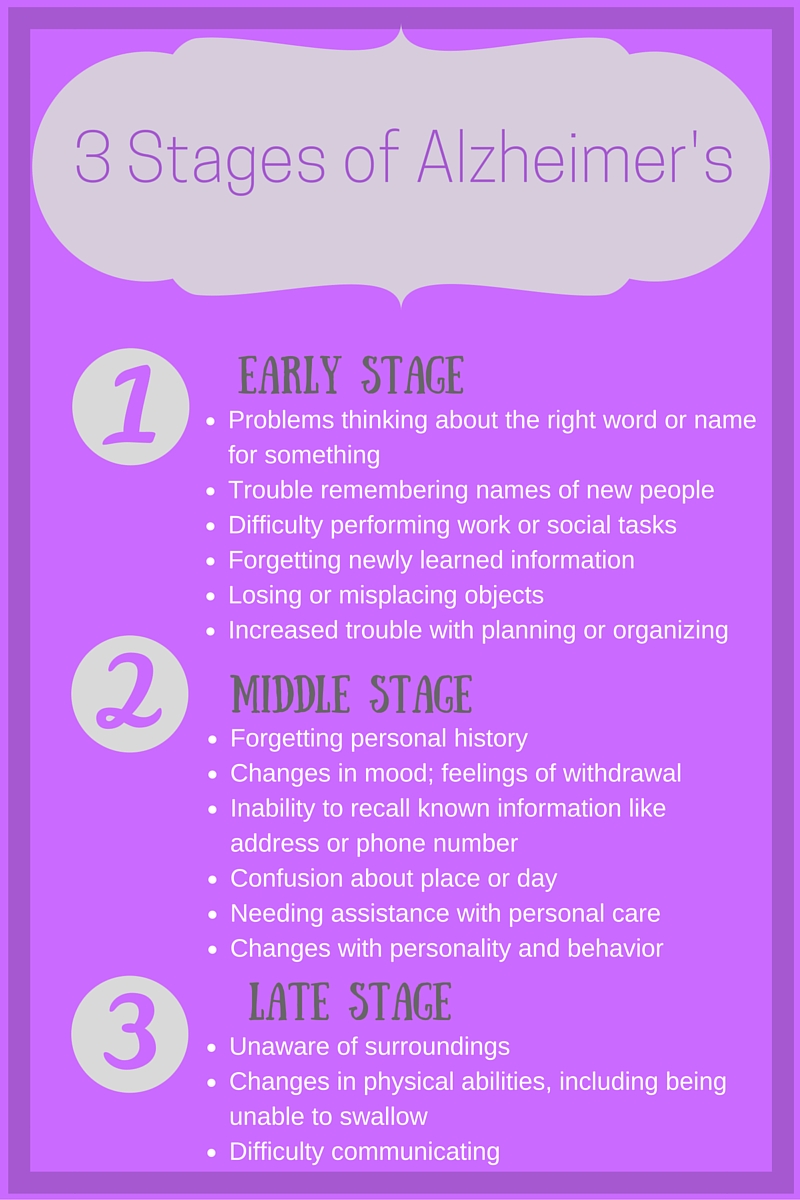
For the past few weeks, we’ve been discussing lesser known dementias like vascular dementia, frontotemporal dementia and Lewy body dementia. However, this week I thought I would wrap up Alzheimer’s Disease and Brain Awareness month by touching on key elements of Alzheimer’s disease.
I’m sure many of you – especially those who work in the senior industry – are familiar with the term Alzheimer’s disease and may even know a little bit about it. But, today I’m going to go over the basics and stages of Alzheimer’s.
What is Alzheimer’s?
Alzheimer’s is a type of dementia that causes problems with memory, thinking and behavior.
Alzheimer’s is the most common form of dementia, accounting for 60-80% of dementia cases.
Alzheimer’s is not a normal part of aging. This gets confusing because the greatest known risk factor for Alzheimer’s is increasing age; however, significant and worsening memory loss is not normal.
Early onset Alzheimer’s affects up to 5% of the people with this type of dementia, and symptoms typically occur in someone’s 40s or 50s.
Alzheimer’s is a progressive disease and symptoms gradually worsen over time.
Those with Alzheimer’s live an average of eight years after their symptoms become noticeable to others.
Alzheimer’s has no current cure, but treatments for symptoms are available.

What are the stages of Alzheimer’s disease?
Mild (early-stage)
In the early stage, a person may still function independently. While he or she may still go about their normal day-to-day activities, the person may feel as if he or she is having memory lapses.
Common difficulties include:
- Problems thinking of the right name or work to call something
- Trouble remembering names when introduced to new people
- Difficulty performing tasks in social or work settings
- Forgetting information that was just read or learned
- Losing or misplacing objects
- Increasing trouble with planning or organizing
Moderate (middle-state)
The middle stage of Alzheimer’s is typically the longest stage of the disease. As the disease progresses, the level of care the person needs will increase.
Noticeable symptoms include:
- Forgetting one’s own history
- Changes in mood and feelings of withdrawal
- Inability to recall long-known information like address or telephone number
- Confusion about place and day
- Needing help with dressing and bathing
- Changes in sleep
- Increased risk of wandering or getting lost
- Personality and behavior changes
Severe (late-stage)
In the final stage of Alzheimer’s disease, a person will lose his or her ability to respond to the environment and control movement. At this stage, individuals will require full-time care and become vulnerable to infections, especially pneumonia.
Other symptoms include:
- Becoming unaware of surroundings
- Experiencing changes in physical abilities, eventually being unable to swallow
- Difficulty communicating
The Alzheimer’s Association is a great resource for information on all types of dementia, including Alzheimer’s disease.



